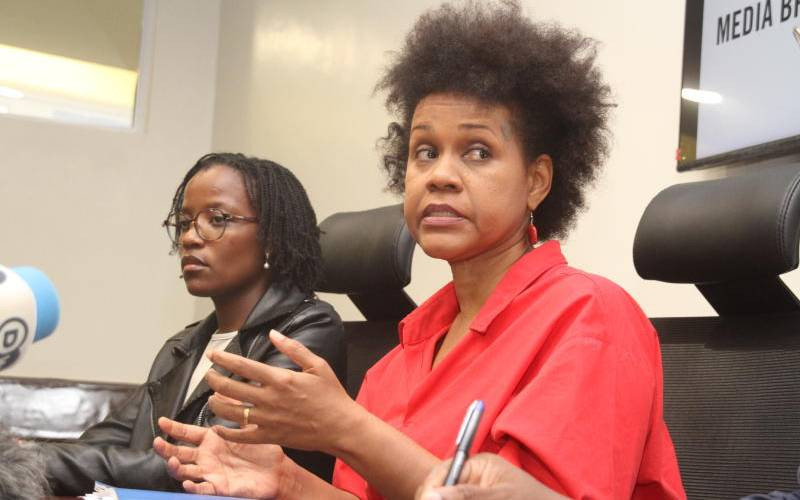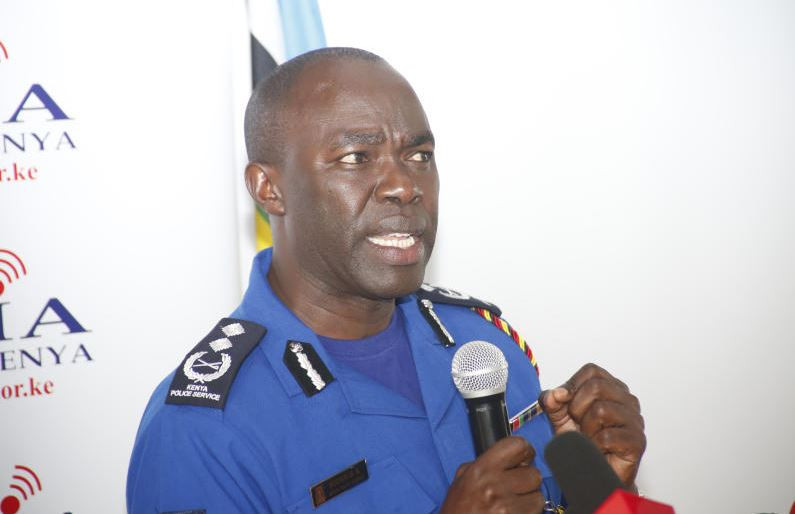“I am done with my hair, and I am coming home.” Those were the last words Tanzanian activist Maria Sarungi Tsehai told her husband as she entered a taxi, unaware that she was about to face a terrifying ordeal.
What followed was a harrowing abduction she believes was carried out by young men, eerily disguised as police officers.
On that fateful Sunday, Maria had been at a salon at Chaka Place in Kilimani, Nairobi, when she noticed a masked woman behaving suspiciously. Although the encounter sent a chill through her, she thought little of it.
Maria then called her husband to let him know she was nearly done at Chaka Place and hailed a taxi to head home.
She recalls rushing to the taxi, but as the driver navigated toward the main road, a black van abruptly blocked their path.
Two men approached the car doors, shouting at the driver. Claiming to be police officers, they forcibly dragged Maria into their vehicle.
“I was screaming, telling the driver not to open the door. They can’t take me,” Maria recounts, but the men were relentless. Despite her struggles, they overpowered her and quickly covered her face with a cloth, suffocating her cries.
As the car sped through the streets, Maria heard a sudden crash — a collision between their vehicle and probably a bus. Amidst the chaos, one of her abductors muttered bunduki (firearm), revealing they were armed.
Tightly handcuffed and her head covered, Maria was terrified.
The men rifled through her belongings, seemingly searching for her phone and other electronic devices.
One of the men choked her, demanding her phone’s Pin, while another sat on her leg to restrain her.
In her panic, Maria gave them
random numbers, but they persisted, continuing to choke her and pull the handcuffs.
Stay informed. Subscribe to our newsletter
Despite the trauma, Maria bravely challenged them to take her to the police station where she would give them the Pin if they were truly officers.
Maria believes the car was heading toward the border with Tanzania, but after several phone consultations with unknown parties, they released her. “It was traumatic; she completely lost track of time or even how long she was held,” said a person privy to the kidnapping.
Before letting her go, they returned her bag but warned her not to look at the car once they set her free.
“I walked until I reached what looked like a main road. I saw a vehicle and asked if it was an Uber. I got into one and told them where I live in Kilimani,” Maria recalls, still fearful that she was being watched.
“I believe this was an attempt to intimidate me for my activism. I think the abductors were young based on their voices,” she said.
She links the incident to the upcoming 2025 General Election in Tanzania, a time she believes will be marked by heightened political awareness but also increased repression.
Maria has been outspoken about the growing number of politically motivated abductions in Tanzania.
And she suspects her abduction was aimed at gaining access to sensitive information on her phone, which she believes could have triggered sleepless nights for her captors.
Though shaken, Maria remains determined to continue her advocacy for human rights and land reforms.
Having relocated to Kenya after receiving threats of detention, she feels safer here than in any other country in the region.
“I have never felt unsafe in Kenya in the four years I’ve been here,” she says, expressing gratitude for the safety Kenyans provide her.
Maria’s abduction highlights a dangerous trend of transnational repression, where governments violate human rights across borders.
It also raises critical concerns about Kenya’s role in facilitating such incidents, violating international law.
Maria has been a staunch critic of Tanzanian President Samia Suluhu.

























